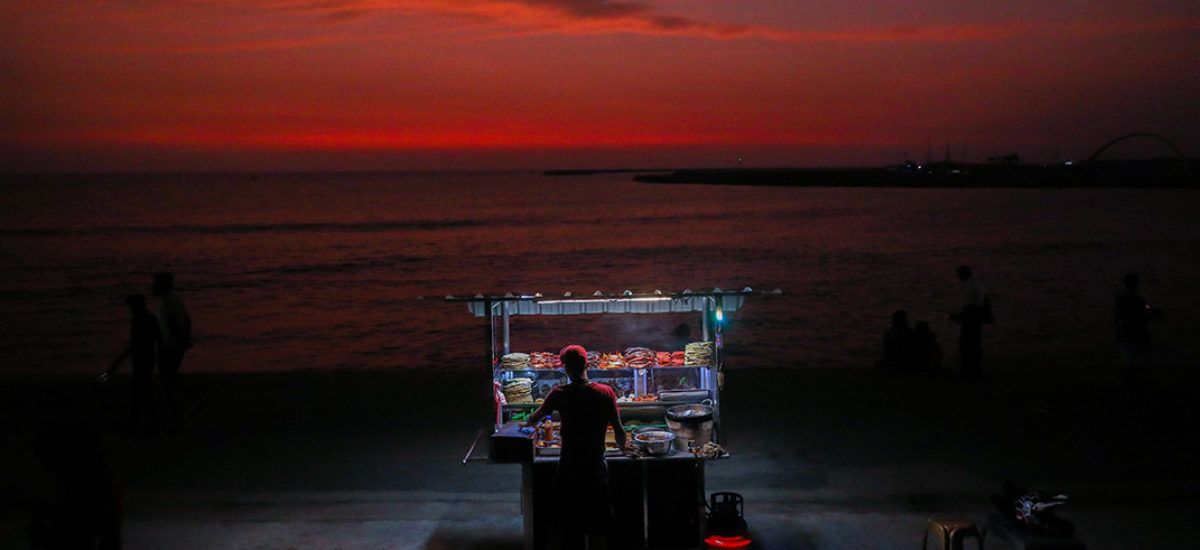Photo courtesy of Thilina Kaluthotage
In some ways, in 2022, life for Sri Lankans has followed a similar pattern to previous years. A few have prospered greatly or wielded power ruthlessly, many have faced misery, protests by justice-seekers and human rights organisations at home and abroad have been brushed aside and religion has been exploited by those who disregard its core values. Yet in other ways, the year now ending has been extraordinary, with many twists and turns, making it hard to anticipate the full consequences in years to come.
There was an unprecedented economic crisis triggered by the recklessness and authoritarianism of then president Gotabaya Rajapaksa and his inner circle (although previous governments, international partners and the pandemic played a part). A people’s movement followed which, although almost entirely non-violent, was powerful enough to bring down a regime which, not so long before, had won substantially during elections. Many of the voters who backed the former president had come to see themselves as having been duped through ethnic nationalist and communalist rhetoric as well as the promise of protection from harm, especially as suspicion continued to grow around his family’s role in the Easter 2019 bombings that helped propel him into the presidency.
Some minority political leaders were mistrustful of the aragalaya because of previous lack of support among the majority for Tamil and Muslim rights or saw it as less relevant because of their own class background, while poorer members of those communities knew they might be at greater risk if they joined protests. Yet, at least temporarily, there were moments when divisions among those oppressed in different ways were overcome and solidarity displayed.
At global level as well as in Sri Lanka, links were made across different aspects of human rights and democracy. Resolutions and reports drew attention to economic and social as well as cultural and political rights, the plight of those without adequate food and medical care in addition to minorities. The need to tackle discrimination against women and lesbian, gay, bisexual and transgender people was also highlighted (even if some demonstrators had to confront their own prejudices). As the widely condemned Prevention of Terrorism Act – so long used to lock up, abuse or intimidate minorities on the flimsiest grounds – was turned against Sinhalese student leaders, that the wellbeing of different sections of the population was interconnected became harder to ignore.
Yet President Ranil Wickremesinghe, who took charge with the help of the ruling party, managed to clamp down on protests despite stark ongoing hardship, especially for those already vulnerable. His mixture of brute force selectively aimed at key protesters, regardless of human rights norms, reducing inconvenience to the upper and upper middle class, portraying himself as reasonable (for instance talking politely with minority party leaders although key grievances remain unaddressed) and convincing people that there is no viable alternative, has largely been effective. The International Monetary Fund’s neoliberal approach foisted on countries in economic crisis, although so often damaging even from a limited economic perspective, was repeatedly pushed as the only practical way forward. Worryingly, he appears to be less unpopular than most rival politicians while even the badly discredited Gotabaya Rajapaksa is making something of a comeback.
This is probably in part because so many people were worn out with uncertainty and the worries of survival as well as the failure of a cohesive alternative vision to take hold in the popular imagination, which could bring together those critical of the regime on a longer term basis. The protest movement, with some exceptions, despite its impressive achievements, probably did not go far enough in breaking down barriers and exploring causes and solutions beyond challenging the ruling dynasty’s self-seeking and corruption.
Nevertheless protests may flare up again if the current president’s promises prove hollow. Scepticism remains about some of the IMF promoted reforms that are likely to widen the gap between the rich and the rest. There have been impressive moments of solidarity, and mutual care and support remain important in varying forms. The untrustworthy nature of public figures who have appealed to Sinhala nationalism while not caring if ordinary Sinhalese go hungry or culture is debased by fanaticism, and to Buddhism while totally disregarding the essence of the Buddha’s teachings, has been revealed, even if there is a risk that this may be forgotten.
What is more, a tradition of struggle based not on militarism but rather mass mobilisation and participatory democracy has been revived. And those striving for change continue to mobilise at a local level as well as occasionally in protests that make news headlines.
Whether human rights abuses and trickery win out in 2023 over justice and compassion will depend largely on the courage and persistence of those working at grassroots level to help Sri Lankans outside the ruling elite to listen more deeply to one another and work together for a better country. Support from people of goodwill internationally and readiness to keep making connections will also make a difference.
There will be no quick and easy answers to the problems that lie ahead. However, although the consequences of the events of 2022 in Sri Lanka may not be fully known for years, maybe generations, in this remarkable year some seeds have been sown that may flower in the future.


